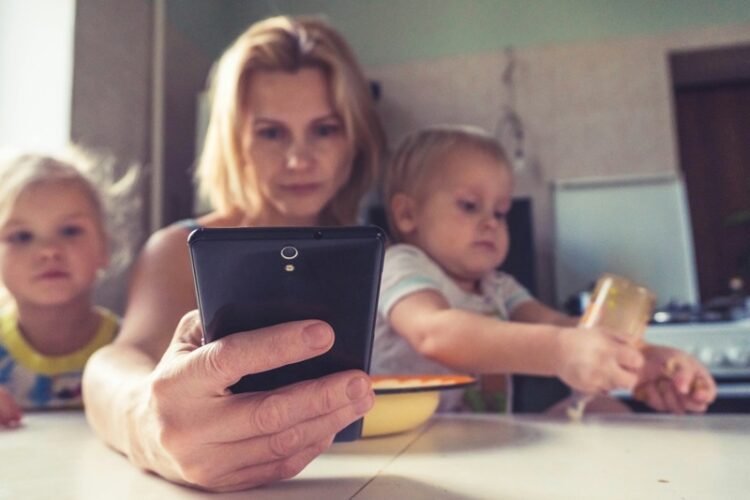Introduction
In recent years, the modern dating landscape has increasingly been perceived as challenging. According to a survey conducted by the Pew Research Center, nearly half of U.S. adults, 47%, believe that dating is harder now than it was ten years ago. Several factors contribute to this sentiment, creating a complex modern dating landscape that many find challenging to navigate.
Among the primary reasons cited for this shift is the increased perception of risks associated with dating.
Concerns about personal safety, emotional well-being, and the potential for harassment have grown more pronounced in the modern era.
This heightened awareness can make the prospect of dating daunting for many individuals.
Furthermore, the advent and proliferation of technology have significantly altered the way people meet and interact.
While online dating platforms and social media have expanded the pool of potential partners, they have also introduced new complexities.
The paradox of choice, the impersonal nature of digital communication, and the prevalence of ghosting are just a few examples of how technology can complicate romantic pursuits.
Additionally, harassment and inappropriate behaviour remain pervasive issues in the dating world.
These negative experiences can deter individuals from actively seeking relationships, contributing to the overall perception that dating is harder today than in the past.
This blog post aims to explore these factors more deeply, exploring how they collectively create a more challenging dating environment.
By examining the risks, technological influences, and societal issues that shape the modern dating landscape, we hope to provide a comprehensive understanding of why so many people find it increasingly difficult to form meaningful connections in today’s world.
The Role of Technology in The Modern Dating Landscape
The advent of dating apps and social media platforms has revolutionized how people connect, offering unprecedented access to potential partners.
On the one hand, these platforms can facilitate meaningful connections by broadening one’s social network beyond geographical limitations, allowing individuals to meet people they would never have encountered otherwise.
However, the ease of access and sheer volume of options can also complicate the dating process.
The paradox of choice often leaves individuals feeling overwhelmed and indecisive, unsure whether to commit or continue searching for a possibly better match.
This has led to a culture of “swiping” and superficial assessments, where users may prioritize physical appearance over deeper compatibility factors.

Moreover, the influence of social media extends beyond dating apps, shaping perceptions and expectations of relationships.
The curated nature of social media profiles can lead to unrealistic standards and comparisons, fostering feelings of inadequacy or anxiety.
The constant exposure to others’ highlight reels can create the illusion of perfect relationships, making it harder for individuals to appreciate and nurture their own imperfect but genuine connections.
Interestingly, men are more likely than women to cite technology as a reason dating is harder.
One potential reason for this gender disparity is that men often face different pressures and expectations in the digital dating world.
For instance, men might feel a greater burden to initiate conversations and maintain engagement, which can be daunting in an environment where responses are not guaranteed.
Additionally, the competitive nature of online dating can heighten feelings of rejection and lower self-esteem for men, who may perceive a lack of reciprocation more acutely.
Ultimately, technology has undoubtedly transformed the modern dating landscape, and it seems to have introduced new complexities, which seem to feed into the difficulties of dating nowadays.
Interestingly, though, despite men’s views, one of the world’s leading dating experts, Dr Helen Fisher, argues that technology hasn’t changed love.
In the video below, she argues that in our tech-driven, interconnected world, we’ve developed new ways and rules to court each other, but the fundamental principles of love have stayed the same (watch to the end for a lively discussion with another prominent love expert, Dr Esther Perel).
Increased Risks in the Dating World
Safety concerns have also become a prevalent issue, with individuals, particularly women, expressing heightened anxiety about meeting new people.
According to the data, women are twice as likely as men to cite these increased risks as a reason for finding dating harder. This disparity underscores the gender-specific challenges that contribute to the overall complexity of modern dating.
The unfortunate reality is that the advent of online dating platforms has amplified the potential for encountering dishonest or malicious individuals.
For example, things like catfishing, where someone creates a fake identity to deceive others, have become a significant concern.
Additionally, the anonymity provided by these platforms can sometimes foster harmful behaviours, including harassment and stalking.
These risks all necessitate a more cautious approach to dating, often leading individuals to feel anxious and apprehensive about meeting potential partners.
Furthermore, the fear of encountering predators or those with malicious intent can overshadow the excitement of new relationships.
This pervasive sense of danger impacts individuals’ willingness to engage openly and vulnerably with others.
The additional burden of verifying the authenticity of a date’s identity and intentions adds layers of complexity to an already challenging process.
Moreover, the societal shift towards digital interactions has not only exposed individuals to increased risks but also altered the dynamics of trust and communication.
The need for personal safety measures, such as meeting in public places and sharing location details with friends, has become a norm.
While these precautions are necessary, they also contribute to the sense that dating is harder today than it was in previous generations.
Overall, the increased risks associated with the modern dating landscape have a profound impact on the dating experience.
They create an environment where anxiety and caution prevail, making it more challenging for individuals to forge meaningful connections.
Let’s look at harassment in the dating scene a bit more closely.
Dating Harassment in the Modern Dating Landscape
As reported by both men and women, harassment has become an increasingly prevalent issue, affecting a significant portion of the dating population in the US.
According to cited data, 65% of single women and 50% of single men have reported experiencing harassing behaviours over the past year.
These alarming figures underscore the challenges that modern-day dating presents, making the pursuit of romantic relationships more daunting.
But what constitutes dating harassment, and what should you look out for?
Harassment in the dating world can manifest in various forms, with some of the most common being unsolicited explicit messages, persistent and unwelcome advances, and abusive language.
For women, the experience often includes receiving inappropriate comments or images, which can create an environment of fear and discomfort.
Men, on the other hand, might face different forms of harassment, such as being pressured into unwanted interactions or dealing with aggressive behaviour from others.
Regardless, the impact of these negative experiences can be profound, affecting individuals’ willingness to engage in dating activities.
The fear of encountering harassment can lead to heightened anxiety and reluctance to pursue potential relationships.
For many, the prospect of facing such behaviour repeatedly may result in opting out of the dating scene altogether, thereby reducing opportunities for meaningful connections.
Moreover, the mental health repercussions of enduring harassment cannot be ignored.
Victims often experience increased stress, lowered self-esteem, and symptoms of depression.
These psychological effects can create a cycle of negativity that further hinders one’s ability to engage in healthy and fulfilling romantic relationships, making an already challenging situation even tougher.
Furthermore, addressing the issue of harassment in dating almost always requires a multifaceted approach, including fostering respectful communication, promoting awareness, and implementing stricter guidelines on dating platforms.
But it’s only by understanding and addressing these challenges that it is possible to create a safer and more supportive environment for all individuals navigating the complexities of modern-day dating.
Challenges of Meeting New People
According to the statistics, a staggering 75% of US singles report difficulties in finding potential partners.
Apart from the issue mentioned before, several other factors also seem to contribute to this phenomenon, creating a complex web of obstacles that individuals must navigate.
One of the primary factors is the busy and hectic lifestyles that many people lead today.
Finding time to date can be daunting, given demanding careers, social commitments, and personal obligations.
This busy schedule often leaves little room for socializing outside of one’s immediate circle, thereby limiting opportunities to meet new people.

Additionally, the decline of traditional social venues such as bars, clubs, and community events has further compounded the issue.
These venues once served as popular meeting places for singles, but attendance has decreased as online interactions have become more prevalent.
Another significant challenge in modern-day dating is the pressure to curate attractive online profiles.
With the rise of dating apps and social media, first impressions are often made through digital platforms.
This has led to a situation where singles often feel the need to present the best version of themselves, which, as a result, can lead to elevated levels of stress and anxiety.
The emphasis on physical appearance and the crafting of a perfect persona, for instance, can create unrealistic expectations and hinder genuine connections.
This challenge affects both men and women, although societal expectations may place different types of pressure on each gender.
For men, there is often an expectation to appear confident and successful, which can be daunting and lead to feelings of inadequacy.
Women, on the other hand, may feel pressure to conform to certain beauty standards and present themselves in a way that is deemed attractive by societal norms.
Nevertheless, these pressures can be overwhelming and affect self-esteem, making meeting new people even more difficult.
And the combination of these factors contributes to the perception that dating is harder in today’s world.
The challenge, therefore, is about first understanding these challenges as the first step towards finding more effective ways to connect with potential partners in the modern dating landscape.
However, that is often easier said than done.
The Psychological Toll of Modern Dating
As we’ve established, while the latest changes in the dating world have created many new opportunities for connection, they have also introduced many challenges, like safety concerns.
Additionally, they have also led to many significant psychological challenges.
One of the most profound effects is the pervasive feeling of loneliness that can accompany the quest for love.
Ironically, despite the plethora of dating apps available, many individuals report experiencing isolation and a sense of disconnection.
And this paradox of being surrounded by potential partners yet feeling alone can take a considerable emotional toll.
Rejection is another critical aspect of the psychological strain associated with dating today.
The nature of online dating platforms often leads to a higher frequency of rejection, as users swipe left or right with minimal contemplation.
This can result in feelings of inadequacy and decreased self-esteem.
Studies have shown that repeated exposure to rejection can have lasting impacts on mental health, contributing to anxiety and depression.
For instance, a 2020 study revealed that individuals who faced repeated rejection in online dating environments exhibited higher levels of stress and lower overall well-being.
Furthermore, the pressure to find a perfect match is intensified by the curated profiles and high expectations set by online dating platforms.
Users often present an idealized version of themselves, leading to unrealistic expectations and subsequent disappointment when reality does not align.
This constant comparison and the need to measure up can exacerbate feelings of frustration and self-doubt.

Moreover, one could argue that this emphasis on perfection in online dating could create a cycle of unattainable standards, making dating more complex and more emotionally taxing.
Compounding these issues are the societal expectations surrounding relationships.
There is still an implicit pressure to be in a relationship, which can make single individuals feel incomplete or unsuccessful.
This societal norm can amplify the stress and mental health challenges associated with dating.
Consequently, this combination of loneliness, rejection, and high expectations creates a complex psychological landscape that many individuals find difficult to navigate.
So, the question becomes, how does one cope with and navigate this modern dating landscape effectively without feeling overwhelmed or even unsafe?
Coping Strategies and Solutions
The one thing we can take from the modern dating landscape is that it seems to be filled with many complexities, and challenges can often feel overwhelming.
However, one could also argue that some practical strategies exist to help navigate this intricate landscape better.
One crucial aspect is managing technology’s perceived negative impacts.
Again, part of that process is challenging the perception first.
For example, Dr Helen Fisher argues (see video earlier) that the fundamental nature of love and romantic relationships has not changed despite technological advancements and the rise of online dating platforms.
I would agree with that.
The brain systems governing romantic love, attachment, and reproduction are deeply rooted in our biology, have evolved over millions of years, and remain largely unchanged despite the advent of new technologies.
Technology is just a vehicle of some sort.
Human courtship behaviours, such as flirting, dating, and forming bonds, have remained consistent throughout history.
Yes, while the mediums (like dating apps) have changed, the underlying motivations and behaviours remain the same.
Technology doesn’t change a person; it only amplifies them and makes them more readily present in your space.
Before, you might never have encountered a “weirdo,” but if you did, you avoided them.
Technology, including online dating platforms, is, therefore, just a tool that facilitates the search for a mate but does not alter the fundamental experience of falling in love or forming a romantic bond.
Ultimately, despite the reality of online dating apps, the ultimate goal is still to form authentic, meaningful connections.
Therefore, technology is still just a means to an “old” end, which brings us to the practical side of things.
Setting boundaries for online interactions, the same way as for in-person encounters, such as limiting screen time and prioritizing face-to-face meetings, can foster more genuine connections.
Additionally, it’s beneficial to be mindful of social media consumption, ensuring it doesn’t skew perceptions of potential partners or relationships.
You’re essentially playing the same game but with new tools. But the rules of attraction, connection and long-term relationships haven’t changed.
However, one also has to be honest in saying that reducing risks is another vital consideration in the modern dating landscape.
So, utilizing reputable dating platforms with robust safety features and staying vigilant in sharing personal information can help mitigate potential dangers.
It’s, thus, also advisable to conduct preliminary research on new acquaintances and inform a trusted friend or family member about meeting plans.
This proactive approach can significantly enhance personal safety while dating.
Furthermore, handling harassment is regrettably another necessary skill in the modern dating world.
The cited data does seem to support its prevalence and thus necessitates consideration and a strategy.
I would argue here that it’s essential to recognize inappropriate behaviour early and take decisive action, such as blocking or reporting offenders on dating platforms.
Many people are far too lackadaisical or naive for too long when they start getting attention online.
In the real world, if a creep approached you, you’d respond swiftly and decisively, yet we often let things “play out” online. Why?
Further to that, developing a solid support network can provide emotional backing and practical advice when dealing with such situations.
Maintaining mental health and a positive outlook is also paramount.
Many experts suggest engaging in regular self-care activities, such as exercise, hobbies, and mindfulness practices, to manage the stress and anxiety associated with dating.
I’d add to that by saying you minimise the time you give to people who clearly want to exploit or use you. Listen to your gut; as my wife always says, it’s often onto something.
It can also be beneficial to seek professional help if feelings of overwhelming persist.
Ultimately, while dating is harder in today’s complex environment, adopting some of these coping strategies can make the journey more manageable and rewarding.
By staying informed, setting boundaries, and prioritizing mental well-being, you can foster healthier and more fulfilling connections in the modern dating landscape.
I know of numerous success stories with happy endings, so it’s possible, and it happens.
Conclusion
In the modern dating landscape, various factors contribute to the perception that dating is harder today than it has been in the past.
The advent of technology has revolutionized the way we connect, providing both opportunities and challenges.
While dating apps and social media platforms have expanded our social circles, they have also introduced complexities such as superficial judgments and reduced face-to-face interactions.
Moreover, the paradox of choice can lead to decision fatigue, making it difficult to commit to one person when so many options are available.
Additionally, cultural shifts have redefined relationship norms and expectations, adding another layer of difficulty.
With more individuals prioritizing personal growth and career ambitions, finding time for meaningful connections has become increasingly challenging.
The changing dynamics in gender roles and the increasing awareness of mental health issues further complicate the dating process, requiring more nuanced communication and understanding.
Despite these challenges, understanding the reasons behind them is crucial for navigating the modern dating world more effectively.
By recognizing the impact of technology, societal changes, and personal expectations, individuals can better manage their dating experiences and set realistic goals.
While dating in the modern world may seem daunting, it is essential to remain resilient and hopeful.
The journey to finding a meaningful connection is often filled with learning experiences and personal growth.
By staying open-minded and embracing the complexities of the modern dating landscape, individuals can still find profound and lasting relationships despite the hurdles they may encounter.
I know several who have.

